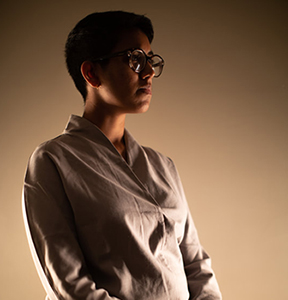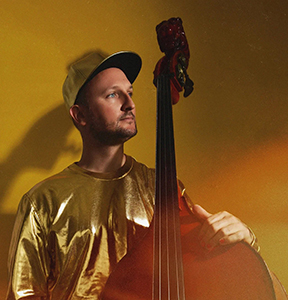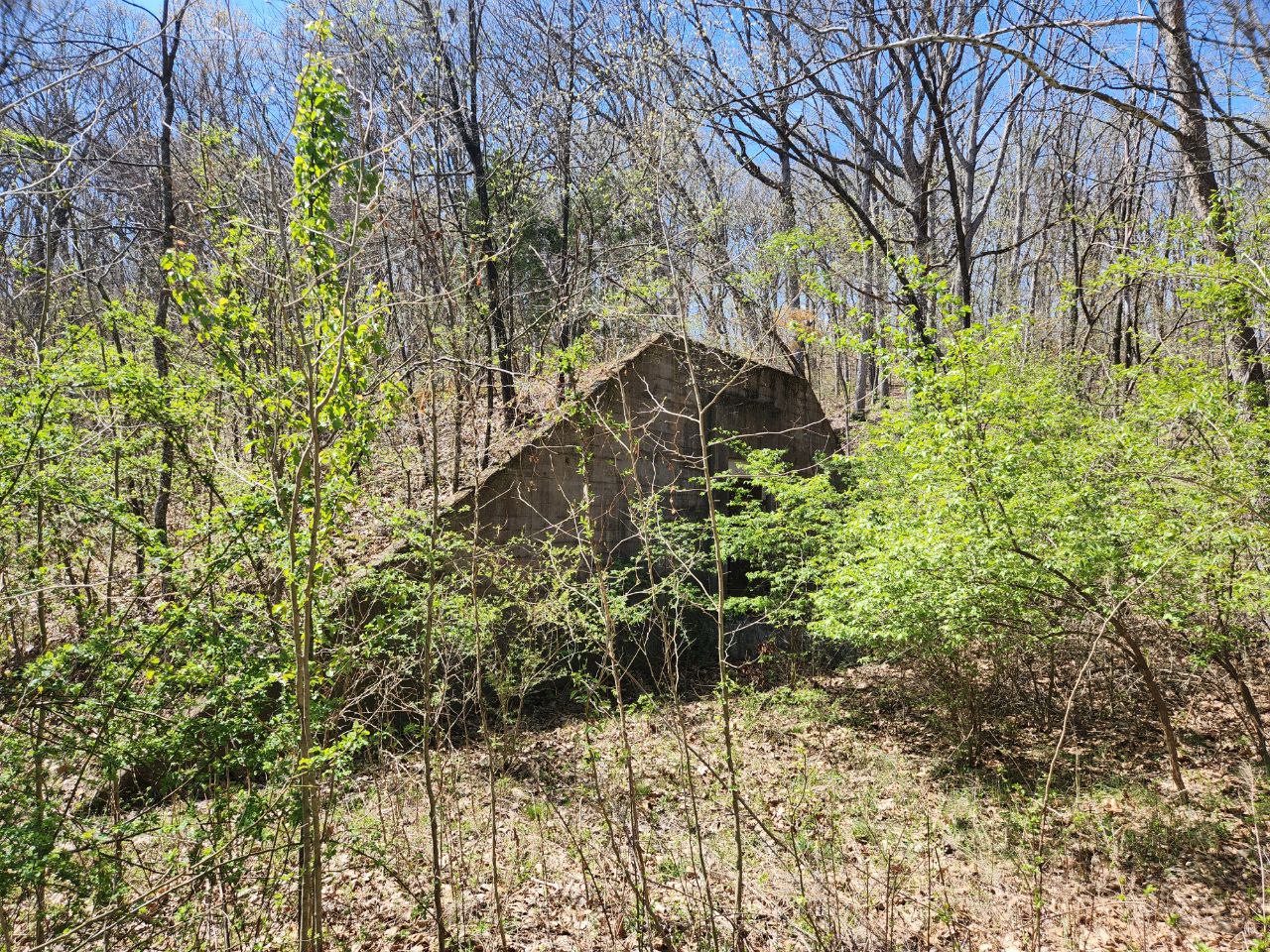Listening Into: Bunkers, Bodies, In-betweens
Attendees must register by Friday, April 12. As of 4/10/24, registration is full. If you would like to join the waitlist, click on the Waitlist button below.
Please note: Due to larger-than-anticipated demand, a second performance has been added to the schedule. Based on the order of RSVPs received, those who have already registered will receive a confirmation email with a 1 pm or 4:30 pm start time. Audiences for both the first and second performances will participate in the discussion with the artists together. The confirmation email will include specific instructions on how to access the site, which is not generally open to the public. If spots become available, those on the waitlist will be contacted in order of registrations received.
NEW SCHEDULE
1 pm | Performance 1 (waitlist)
3 pm | Discussion with artists (both audiences will attend)
4:30 pm | Performance 2 (waitlist)
In a site-specific performance spanning the insides and the outsides of a WWII-era bunker, Anya Yermakova brings together Rajna Swaminathan on mrudangam and kanjira, Marina Kifferstein on violin, and Florent Ghys on acoustic bass and electronics, to join her on piano and foot percussion. Yermakova is an ACLS Emerging Voices Postdoctoral Fellow based in the Center for the Humanities. The immense resonance of the bunker invites the audience to immerse into an “amphibian” state - displacing their acoustic expectations in and out of a concrete half-pipe resonant chamber. Guided by improvised scores, the performers discover music anew, blending their embodied understandings of pitch, rhythm, and intonation with the body of the bunker. In between sonic beauty and the grotesque reminder of war, the bunker offers a space for listening into the gaps in between known and unknown, musical and noisy, human and more-than-human presence.
Following the performance, we will host a discussion at Tyson’s Living Learning Center about the interplay of creative practice and critical inquiry in the performers’ own work and as witnessed in the performance. We will also discuss the role of artistic research with/in the university and how scholars and practitioners can advocate for the value of their work.
The artist-scholars will expose and explain the value of their respective hybrid methodological kernels: of proto-rhythms and non-binary logic (Yermakova), of apertures for improvisation (Swaminathan), of sensation of just intonation technique (Kifferstein), and of playfulness as a critical tool in music composition (Ghys).
This is event is co-sponsored by the Washington University Department of Music and New Music Circle.
All are welcome!

Please note: Due to illness, Rajna Swaminathan is unable to perform.
Rajna Swaminathan, PhD
https://www.rajnaswaminathan.com/about.html
https://music.arts.uci.edu/faculty/rajna-swaminathan
Rajna Swaminathan is an acclaimed mrudangam artist, composer, and scholar. In her music and research, she explores the undercurrents of rhythmic experience and emergent textures in collective improvisation. Rajna’s creative orientation blossomed through a search for resonance and fluidity among musical forms and aesthetic worlds. She leads the ensemble RAJAS, which has been described as “unlike any other on the scene” (New York Times). As a composer, she has been commissioned by the LA Phil, Chamber Music America, and Bang On A Can Marathon. Rajna holds a PhD in music (Creative Practice and Critical Inquiry) from Harvard University, and is currently an assistant professor of music in UC Irvine's Integrated Composition, Improvisation, and Technology program.

Marina Kifferstein, DMA in progress
http://www.marinakifferstein.com/
http://www.takensemble.com/
Marina Kifferstein (she/they) is a violinist and generative artist based in New York City. Equally comfortable in major international venues and DIY spaces, they enjoy a diverse career that encompasses contemporary chamber music, improvisation, composition, classical performance, and experimental practices. She is a founding member of TAK ensemble and The Rhythm Method string quartet, a member of the Lucerne Festival Contemporary Orchestra, and a regular guest with the International Contemporary Ensemble, Wet Ink, and the Talea Ensemble. As an active touring artist, recent performances have taken them to Asia, Europe, South America, Canada, and across the continental US. In addition to regularly conducting residencies at universities including Harvard, Stanford, the University of Pennsylvania, the University of Huddersfield, and Zürcher Hochschule der Künste, they are on the faculty of the United Nations International School, Point Counterpoint, The Composer's Institute at Lake George Music Festival, the Composers Conference, and the Lucerne Festival Academy. Marina is currently a doctoral candidate at the CUNY Graduate Center, with a focus on just intonation in 20th century chamber music for strings.

Florent Ghys, PhD
https://www.florentghys.com/
https://music.wustl.edu/people/florent-ghys
French double bassist and composer Florent Ghys’ music has been described as “highly contrapuntal, intelligent and inventive...” (WQXR-FM), and a “thrilling breed of post-minimal chamber music” (Time Out NY). His pieces “blend elements of minimalism, pop music, and a dose of extravagant wit” (John Schaefer, WNYC) while his cat videos “have attained viral fame” (Alex Ross, The New Yorker).

Artistic Research at Tyson
April 27–28
Tyson Research Center
Several attendance options available. The Artistic Research at Tyson cohort of 13 Washington University humanities graduate students will present their works in progress following a semester of site-specific exploration of creative practice and critical inquiry at the Tyson Research Station. They will share the evolution of their ideas in a variety of formats, including but not limited to performance, documentation of their process and display of creative work within a bunker on site.
RSVP required; see website.
Ghys has written music for some of today’s most influential ensembles and soloists, including the Bang on a Can All-Stars, New Jersey Symphony Orchestra, So Percussion, Nick Photinos, and Jack Quartet. His music has been performed at the Lincoln Center, BAM, the Barbican Center, MIT, Sydney Opera House, and the Muziekgebouw.
Ghys holds a Maîtrise in ethnomusicology, a Diplôme d'Études Musicales in double bass performance, a M.M. in music theory and composition, a masters of fine arts, and a PhD in music composition and technology from Princeton University.
WAITLIST
